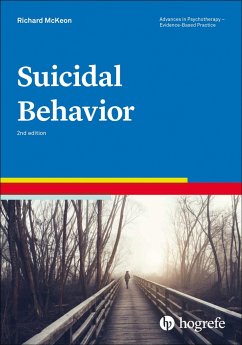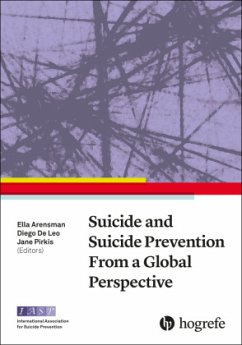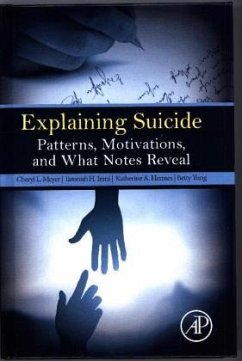
Evidence-Based Practice in Suicidology
A Source Book. Forew.: Gray, Muir
Herausgegeben: Pompili, Maurizio; Tatarelli, Roberto
Versandkostenfrei!
Versandfertig in 2-4 Wochen
59,99 €
inkl. MwSt.

PAYBACK Punkte
30 °P sammeln!
An innovative and long overdue book by the world's leading researchers and practitioners, describing what really works in suicide prevention, the evidence for particular approaches, where the gaps are in our knowledge, and how we can fill them.Suicide rates have increased by 60% worldwide in the past 45 years, with deaths by suicide projected to reach 1.5 million by the year 2020. Despite millions being spent on suicide prevention activities, little is known about their effectiveness: As the US Suicide Prevention Action Network (SPAN) reported, "The single greatest obstacle to the effective pr...
An innovative and long overdue book by the world's leading researchers and practitioners, describing what really works in suicide prevention, the evidence for particular approaches, where the gaps are in our knowledge, and how we can fill them.Suicide rates have increased by 60% worldwide in the past 45 years, with deaths by suicide projected to reach 1.5 million by the year 2020. Despite millions being spent on suicide prevention activities, little is known about their effectiveness: As the US Suicide Prevention Action Network (SPAN) reported, "The single greatest obstacle to the effective prevention of suicide is the lack of evaluation research."Evidence-based medicine involves the conscientious, explicit, and judicious use of current best evidence in making decisions about the care of individual patients - which means integrating individual clinical expertise with the best available external clinical evidence from systematic research.This substantive and authoritative volume shows for the first time how evidence-based approaches can be used in suicide prevention - as well as where evidence is lacking and how we might obtain it. Leading researchers and practitioners describe what really works in suicide prevention, the evidence for and against particular approaches, both in general terms (such as by means of hotlines, restriction of means, psychopharmocology) and for specific disorders (such as schizophrenia, personality disorder), and make specific recommendations about where we go from here.
Dieser Artikel kann nur an eine deutsche Lieferadresse ausgeliefert werden.













